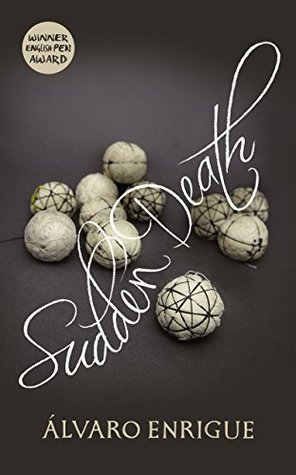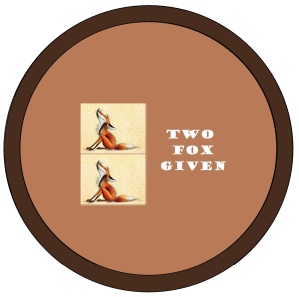
ABOUT THE AUTHOR:
Álvaro Enrigue (born 6 August 1969 in Guadalajara, Mexico) is the award winning author of four novels and two books of short stories. He has been translated into multiple languages, including German, English and French. He lives in Hamilton Heights, New York City, and is married to the writer Valeria Luiselli.
In 1996, Enrigue was awarded the prestigious Joaquín Mortiz Prize for his first novel, La muerte de un instalador (Death of an Installation Artist). Since then it has been reprinted five times, and in 2012 it was selected as one of the key novels of the Mexican 20th century, and anthologized by Mexico's largest publishing house, Fondo de Cultura Económica. His books Vidas perpendiculares (Perpendicular Lives) and Hipotermia (Hypothermia) have also been widely acclaimed.
Both novels have been published by Gallimard. Hypothermia, which offers an "unflinching gaze towards 21st-century life and the immigrant experience", was published in 2013 in the USA and England by Dalkey Archive Press in a translation by Brendan Riley.His latest novel, Decencia (Decency), has received praises in Latin America's and Spain's most relevant publications.
In 2007, he was selected as one of the most influential contemporary writers in Spanish by the Hay Festival's Bogotá39. In 2009, he was awarded a Rockefeller Foundation Residence Fellowship at the Bellagio Centre to finish the manuscript of his last novel, Decencia (Decency). In 2011 he became a fellow at the Cullman Center for Writers and Scholars of the New York Public Library, where he began working on his fifth novel.
On November 4, 2013, Enrigue's novel Muerte súbita (Sudden Death) was announced as the winner of the 31st Herralde Novel Prize, joining a distinguished list of works by authors from Spain and Latin America, including Álvaro Pombo, Enrique Vila-Matas, Antonio Ungar, Javier Marías, Juan Villoro, and Roberto Bolaño.
DESCRIPTION:
A funny and mind-bending novel about the clash of empires and ideas in the sixteenth century, told over the course of one dazzling tennis match
A brutal tennis match in Rome.
Two formidable opponents: the wild Italian painter Michelangelo Merisi da Caravaggio and the loutish Spanish poet Francisco de Quevedo.
Galileo, Saint Matthew and Mary Magdalene heckle from the sidelines.
In England, Thomas Cromwell and Henry VIII execute Anne Boleyn, and her executioner transforms her legendary locks into the most sought-after tennis balls of the time.
Across the ocean in Mexico, the last Aztec emperors play their own games, as Hernán Cortés and his Mayan translator and lover scheme and conquer, fight and fuck, not knowing that their domestic comedy will change the course of history.
Over the course of one dazzling tennis match - through assassinations and executions, carnal liaisons and papal dramas, artistic and religious revolutions, love and war - Sudden Death tells the grand adventure of the clash of empires and the dawn of the modern era.
A brutal tennis match in Rome.
Two formidable opponents: the wild Italian painter Michelangelo Merisi da Caravaggio and the loutish Spanish poet Francisco de Quevedo.
Galileo, Saint Matthew and Mary Magdalene heckle from the sidelines.
In England, Thomas Cromwell and Henry VIII execute Anne Boleyn, and her executioner transforms her legendary locks into the most sought-after tennis balls of the time.
Across the ocean in Mexico, the last Aztec emperors play their own games, as Hernán Cortés and his Mayan translator and lover scheme and conquer, fight and fuck, not knowing that their domestic comedy will change the course of history.
Over the course of one dazzling tennis match - through assassinations and executions, carnal liaisons and papal dramas, artistic and religious revolutions, love and war - Sudden Death tells the grand adventure of the clash of empires and the dawn of the modern era.
REVIEW:
This is one of the hardest books to read, and not because it is not clever, funny or compelling, it is a matter of charm I presume. I just wasn't as captivated as I wish and I couldn't help it.
It is a very well explored book, that has its own tempo and it is very easy to follow. The plot reveals itself at fast- pace and every twist and turn keeps you on your toes. Enrigue has done a marvellous job intertwining significant historical figures and their stories together over the course of a wild tennis match acting as a duel between two people who can't quite remember why they're duelling in the first place! Honestly said, that was the only reason I ever picked up the book, I just wanted to see will he manage to pull it off, and he did!!!
Although, I would have wished it to be a little more periodical, you know, chronologically wise. It is not that I can't deal with chaos, I can, but it sort of robbed the whole thing. The story jumps all over the place, both in location and timeline. It's certainly a book that lacks in continuity. In that way it feels somewhat like a tennis match. As a reader you feel like the tennis ball being bounced back and forth around the court (with significantly more than 2 players!) The seemingly unrelated stories do all intertwine eventually which is very satisfying, assuming you've managed to keep track of it all...
On the whole it is a very good idea, and a very well explored topic, but as I said it just didn't keep me glued to it at all times, mainly because of its inconsistency. The author switches rapidly between different names/titles for characters. One of the main characters was referred to as Caravaggio, Merisi, the Italian, the painter, the artist and the Lombard at different points during the story, switching between them from sentence to sentence. This book demands your attention as if you miss or forget something, it can be easy to lose track. Some characters switch names based on historical context and who they are speaking to etc. which I can understand, but I feel like there was an awful lot of name/title switching on top of this! A couple of other minor things pulled me out of the story; namely some unusual chapters (the author's emails with the editor which seemed to add little to the plot to name just one) and the lack of speech punctuation or line breaks within conversations.
Maybe I am getting old, and my memory isn't as good anymore, but the end result was that my excitement was kept at bay, it just didn't reach full capacity!


No comments:
Post a Comment